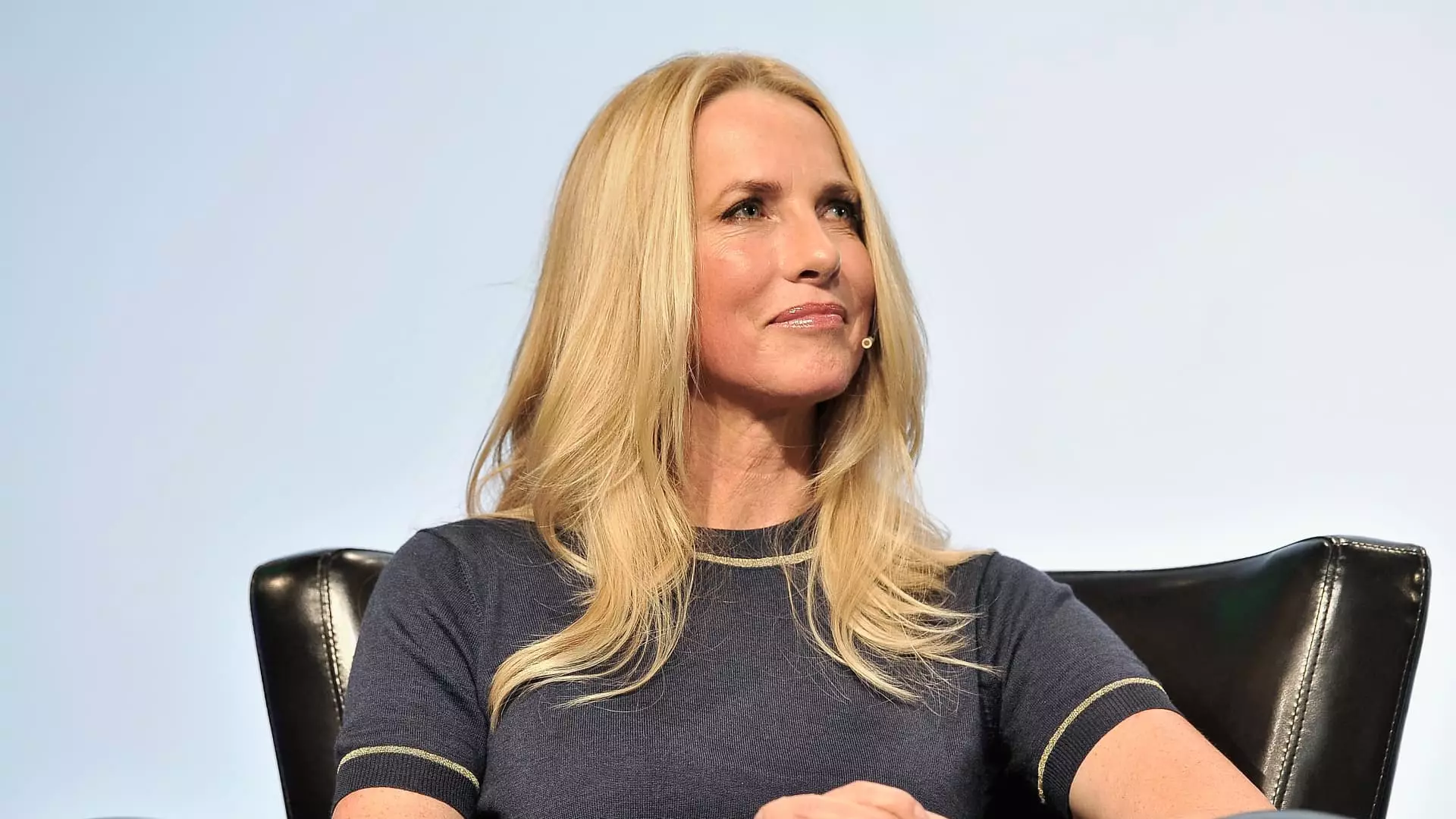The financial strategies and investment trajectories of high-net-worth individuals often mirror broader economic trends, and Laurene Powell Jobs, the widow of Apple co-founder Steve Jobs, is no exception. With a current net worth of approximately $11.5 billion, Powell Jobs has emerged as a significant player in the realm of artificial intelligence (AI) investment since 2022. This article delves into the dynamics surrounding her investment endeavors, particularly through her family office, the Emerson Collective, examining trends within the AI sector and broader investment behaviors among affluent investors.
Data indicates that Emerson Collective has aggressively ventured into the AI startup ecosystem, participating in multiple funding rounds that cumulatively exceed $1 billion. The firm has diversified its investments across various geographic regions and applications, from healthcare and education to image analysis and large language models. Notable investments include a New York-based medical AI company and a Norwegian startup that develops interactive teaching tools. This breadth reflects a strategic intent to capitalize on diverse AI advancements, hinting that Powell Jobs is not merely jumping on the AI bandwagon but is instead creating a comprehensive portfolio aimed at innovation
Recent findings from the UBS Global Family Office Report underscore a burgeoning interest in AI among family offices. According to the report, 78% of the surveyed family offices expressed intentions to invest in AI within the next few years. This investment enthusiasm is indicative of a fundamental shift where family offices, often characterized by conservative investment strategies, now lean towards technology and innovation. Powell Jobs’ proactive stance on AI investments predates many of these findings—she recognized the potential of AI well before the advent of widely recognized applications like OpenAI’s ChatGPT.
Adding another layer to her investment narrative, Powell Jobs is reportedly backing a collaboration between Jony Ive—the iconic designer closely associated with Apple—and OpenAI CEO Sam Altman. Their joint initiative aims to create a novel AI “computing device,” with aspirations of raising up to $1 billion by year-end. This partnership not only emphasizes the melding of design and technology but also shows Powell Jobs’ inclination towards leveraging established industry expertise to create impactful technological solutions.
The diverse investment strategy of Emerson Collective can be interpreted as a reflection of Powell Jobs’ broader philanthropic values. With a focus on sectors such as education, healthcare, and the environment, her investments in AI startups align with her mission to foster advancements that could address societal challenges. By channeling resources into AI, she is not seeking profit alone; rather, her approach aims to create products and services that enhance human connectivity and improve quality of life.
As we consider the future landscape of AI investments, it is prudent to recognize the role of significant investors like Powell Jobs in shaping market dynamics. The surge in AI investment—from both individual investors and family offices—not only indicates confidence in the sector but also a collective belief that technology can lead to substantive change. It is likely that Powell Jobs will continue to be a compelling figure in the world of AI, steering her investments towards companies that blend efficacy with social responsibility.
Laurene Powell Jobs personifies the evolving nature of AI investment among high-net-worth individuals. Her strategic investments through the Emerson Collective not only reflect current technological trends but also align with a more humanitarian approach to wealth allocation. As AI continues to proliferate across various sectors, watching her next moves will likely provide insights into the future trajectory of responsible and impactful investment practices.

